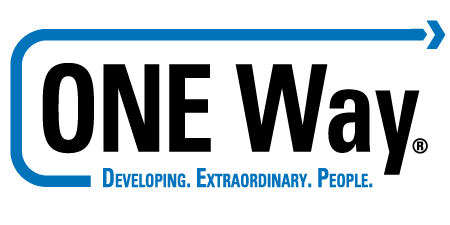Feature Article
Got Salmon?
Michael Riggs, M.Ed.
The morning alarm goes off. The snooze gets hit once, twice, and three times for good luck.
Finally, you drag your tired body from the sack to the shower. Scrub. Yawn. Scrub some more.
 Driving to work you endlessly flip from station to station trying to find something that resembles music.
Driving to work you endlessly flip from station to station trying to find something that resembles music.
Tense and frustrated from the drive, you arrive at your work space, plop down your satchel of work “stuff” that was brought home with good intentions to complete — if it wasn’t for that deserted island, worm eating, reality TV show that sucked you in.
You’re off to get a hot cup o’ java to jumpstart the day.
After twenty minutes of getting trapped into small talk with coworkers about small stuff, you make it back to your cubicle. It’s time to get to work… almost.
Sifting through junk mail, junk email, and a variety of other time-killing tasks, you prepare to get to work…almost.
After writing a few late birthday cards, making a few not very important phone calls, and jotting a few not very important notes to yourself it’s time to get to… lunch.
Following a client lunch date that ran over a few minutes, as you got extremely caught up in discussing tomorrow’s fantasy sports pool draft, you get back to your “work space” and make some headway on the nagging Jones’ file, the never-ending project B14, and the budget’s budget.
Phew! What a day.
Exhausted, you grab your keys and shuffle through the parking lot to reverse your teeth-clenching commute to get home and, well, do something.
Unfortunately, this scenario may have some eerily familiar humor to it. Most people are very poor time and life managers. Days, weeks, months, and years get away from them without significant life, work, social, physical, or spiritual progress. The primary reason? They do not know how to manage their time, thus, their lives effectively. Each day is a series of non-sequential, significantly unrelated and random “What should I do now?” questions. In essence, these people create a time vacuum that gets filled with the closest, and usually the easiest, task.
It is human nature to swim downstream and let the current carry you along without expending much mental, emotional, or physical energy. If you give yourself the opportunity to waste time, odds are quite good that you will.
Question: How many people do you know that wake up each day and browse the day’s TO DO list that was created at the end of the previous day and say, “I am going to complete, A, B, and C, first because those are most critical to my success. Then, I will move onto D, E, and F as they are clearly the launching pad for G, H, and I, etc.?”
Answer: Successful and satisfied (S²) people, that’s who.
If your life is not evolving in the direction or at the pace you imagined it would, the first thing you should examine is your effective and efficient use of your time. Individuals that prioritize their activities based upon the answer to this question, “The completion of what tasks will have the most significant impact on my overall success?” are the ones that slowly pull ahead of their competition and actively develop the life of their dreams.
So, what should you do?
For the next 14 days, write down what you will complete tomorrow, the night before. Yes, the night before. Make sure the first items on your list are the most critical to your success. Get focused and stay focused on the most important things. If you want to get your car washed or send a Get Well card to an ailing friend set time aside after you have completed critical tasks. If you do this simple activity for 14 days you will be very pleased with the amount of important “stuff” you get done, and the positive momentum you’ll have created for yourself.
Now, back to human nature. Learning to swim upstream, in other words, tackling the important stuff first, can be learned. It will take time and significant effort, though. But the reward is most certainly worth the effort. After all, the grizzly bear certainly looks blissful munching on his hard-fought-for salmon, doesn’t he?
S² Tip
For the next 14 days, write down what you will complete tomorrow, the night before. Make sure the first items on your list are the most critical to your overall success.
Success Story
Successful Entrepreneurs Fred Smith (Fedex), Jeff Bezos (Amazon.com) and Martha Stewart are prime examples of efficiency, purpose and the will to “get it done”. Read more…
In Another’s Words…
“The real measure of success is the number of experiments that can be crowded into twenty four hours.”
– Thomas Edison, inventor
